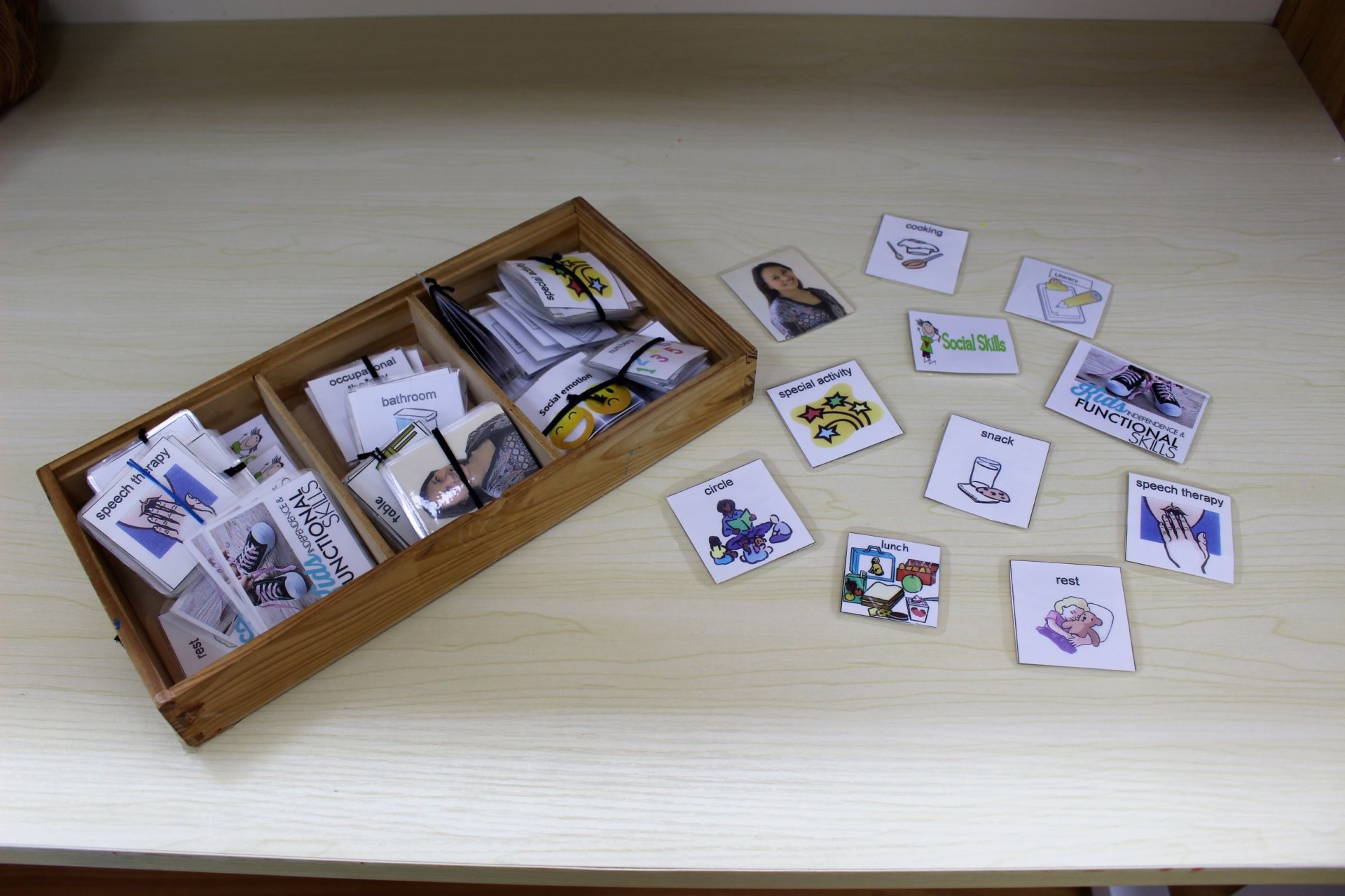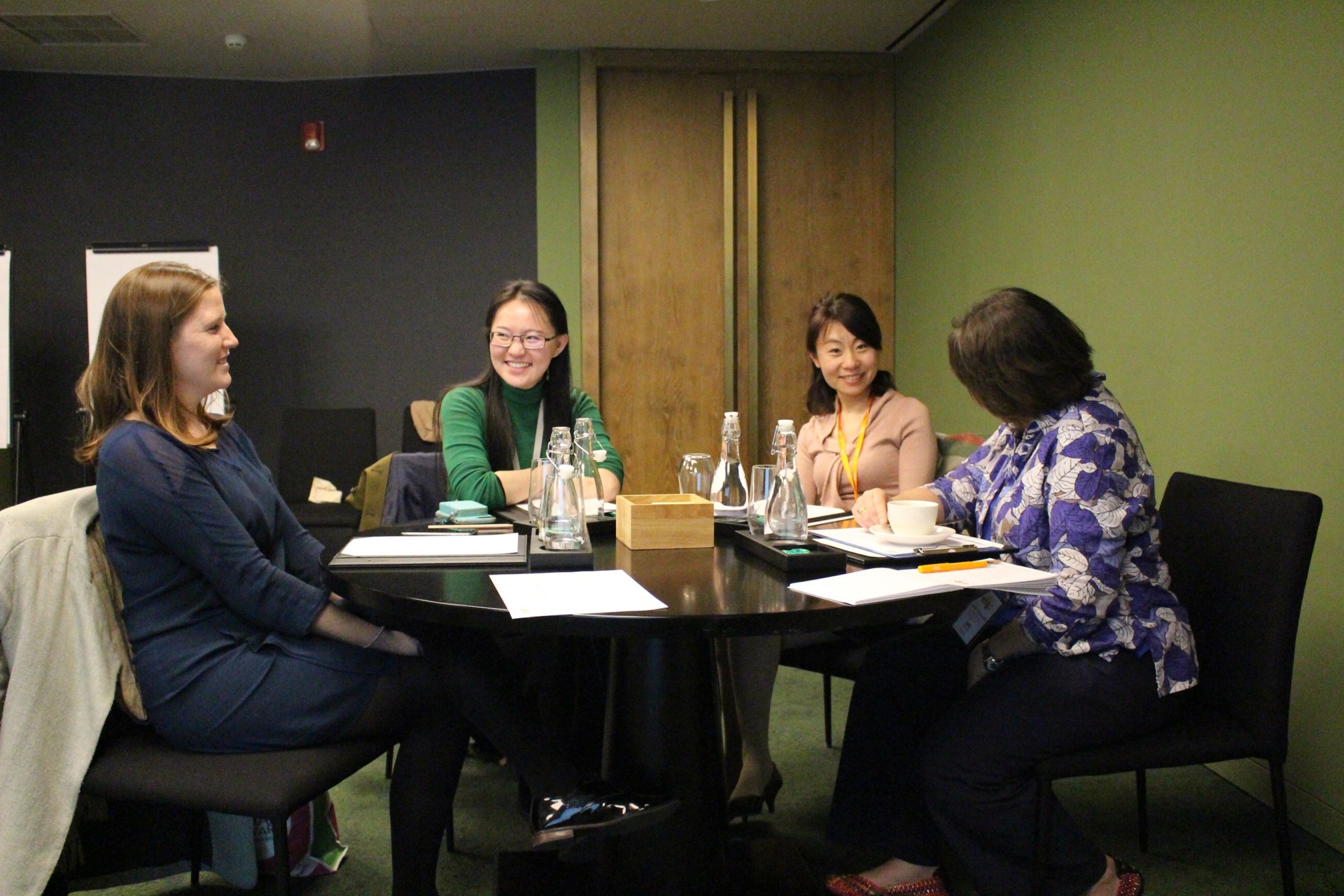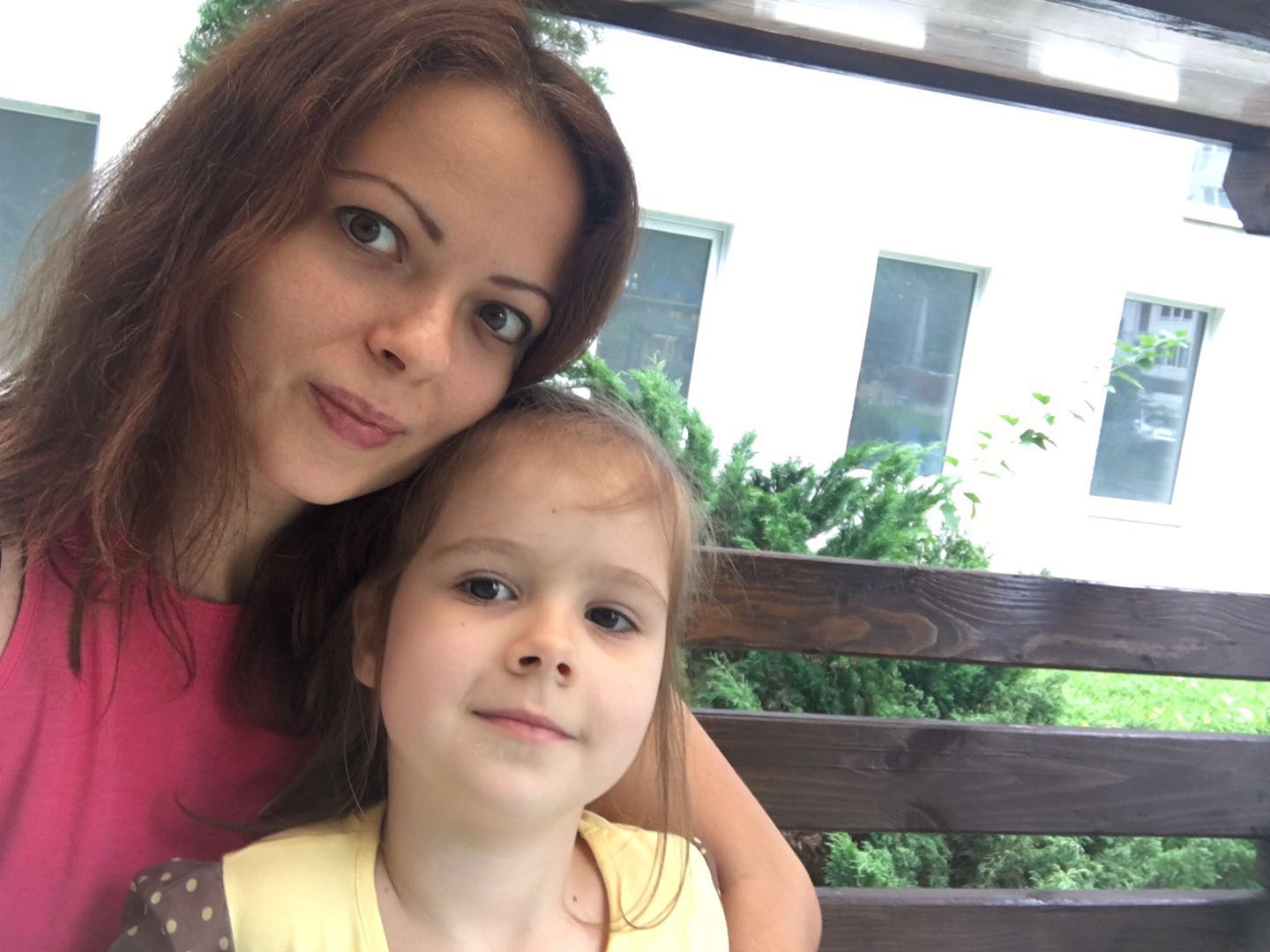By Kate Kovalenko
Kate Kovalenko is a registered behavior technician and mother to 6-year-old Zoya.

Therapy Skills and Strategies
I use a lot of Applied Behavior Analysis (ABA) skills with my daughter. For example, when she doesn’t want to do something, I employ the Premack Principle, which is basically a First…Then… strategy (first, the non-preferred activity; then, a preferred activity).
When Zoya was younger, I used a simple visual schedule to help her become more organized and learn how to plan things. When teaching her a new skill, I use prompt fading (the systematic reduction of a prompt until it is eliminated or redefined as an integrated part of the task), task analysis (breaking a skill down into smaller, more manageable components), you name it! A lot of the things we use at ELG to support children with autism and other special needs are beneficial for all children to learn and develop skills!
Most importantly, I am trying to be consistent in terms of my expectations and set rules, to be on the same page with my husband and to follow through.

Promoting Independence
Working in ELG’s full-time program taught me an essential lesson: Do not overprotect your child, let them be more independent, and support when necessary. In ELG’s program, there are children with complex special needs and still they are expected to complete basic tasks at their level of ability. I am talking about very simple tasks, like cleaning up after the lunch, tying shoelaces, changing clothes, etc.
I notice that many modern parents tend to do this work instead of their children. In China, often grandparents and/or ayi help parents to take care of the child, not pushing them to learn new skills and take care of basic tasks, leaving him/her no chance of learning independence. Let them try! It will take a bit longer and you might need to be patient, but it will ultimately help your child to develop.

Colleague Support
My colleagues are the most wonderful people and professionals. I got a lot of knowledge attending Professional Developmental Days in ELG from presentations of the speech language pathologists, ABA therapists, psychologists, and occupational therapists. (Editor’s note: PDD days are free training days held twice a year. Follow ELG’s WeChat to ensure you get notified about the next training day and other training events in the community!)
My daughter is bilingual and I had some questions about how it affected her speech development. I remember presentations of my colleagues on sleep habits, attachment issues and sand play therapy; I used their recommendations and saw the positive changes.
Recommendations my occupational therapist colleague gave me helped us to overcome difficulties Zoya had with left-handed Chinese handwriting and coordination. Now my daughter writes Chinese characters with her left hand better than her right-handed dad does it!

I’m lucky to have been able to study child development and behavior therapy, and to be surrounded by knowledgeable, caring colleagues. But even non-professionals can learn the techniques I’ve listed above by doing their own research, attending parent trainings, or consulting directly with a therapist. Many kindergartens and schools in Shanghai offer training led by ELG and other organizations for parents. Ask your school about hosting a training!
There is a wealth of information out there about how we can help our children to thrive. Seek it out and your child will be better for it!
Contact [email protected], 400 6129 423, or +86 21 5206 6273 for more information about how we can support your family or arrange a training at your organization or community group.
